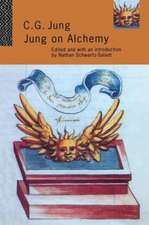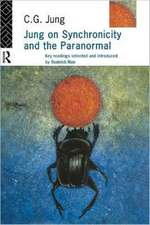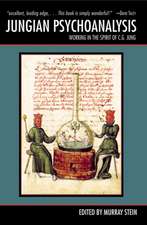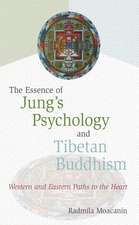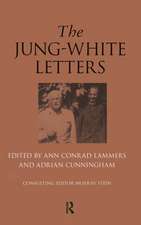The Primordial Mind in Health and Illness: A Cross-Cultural Perspective
Autor Michael Robbinsen Limba Engleză Hardback – apr 2011
This book challenges the western assumption that knowledge is synonymous with rational thought and that the aspect of mind that is not thought is immature, irrational, regressive and pathological. Robbins illustrates the central role of primordial mental activity in spiritual cultures analogous to that of thought in western culture as well as its significant contributions to numerous other phenomena including dreaming, language, creativity, shamanism and psychosis.
In addition to his extensive clinical experience as a psychoanalyst Robbins draws on first-hand contact with Maori and other shamanistic cultures. Vividly illustrated by first and second hand accounts, this book will be of great interest to psychoanalysts, those with a psychological interest in spiritual cultures as well as those in the fields of developmental psychology, cultural anthropology, neuroscience, aesthetics and linguistics.
| Toate formatele și edițiile | Preț | Express |
|---|---|---|
| Paperback (1) | 292.05 lei 6-8 săpt. | |
| Taylor & Francis – apr 2011 | 292.05 lei 6-8 săpt. | |
| Hardback (1) | 654.48 lei 6-8 săpt. | |
| Taylor & Francis – apr 2011 | 654.48 lei 6-8 săpt. |
Preț: 654.48 lei
Preț vechi: 915.34 lei
-28% Nou
Puncte Express: 982
Preț estimativ în valută:
125.25€ • 130.28$ • 103.40£
125.25€ • 130.28$ • 103.40£
Carte tipărită la comandă
Livrare economică 15-29 aprilie
Preluare comenzi: 021 569.72.76
Specificații
ISBN-13: 9780415454605
ISBN-10: 0415454603
Pagini: 254
Ilustrații: 5 tables
Dimensiuni: 156 x 234 mm
Greutate: 0.54 kg
Ediția:New.
Editura: Taylor & Francis
Colecția Routledge
Locul publicării:Oxford, United Kingdom
ISBN-10: 0415454603
Pagini: 254
Ilustrații: 5 tables
Dimensiuni: 156 x 234 mm
Greutate: 0.54 kg
Ediția:New.
Editura: Taylor & Francis
Colecția Routledge
Locul publicării:Oxford, United Kingdom
Public țintă
Postgraduate, Professional, and Professional Practice & DevelopmentCuprins
Preface. The Big Picture. Western Models of Primordial Mind: Freud and Klein. Western Models of Primordial Mind II: Jung, Bion, Matte-Blanco. Western Models of Primordial Mind III: Piaget, Werner, Attachment Theory and Implicit Knowledge. Primordial Mental Activity. Dreaming. The Primordial Mind in Everyday Life. The Relationship Between Mental Processes in Spiritual Cultures. The Mind of a Shaman. Shamanism and Psychosis. Special Sensitivity: Synesthesia and Lucid Dreaming. Creativity. Psychosis. Thoughtful Reflections of Psychotic Persons. Language, Thought and Communication. Neuroscience of Primordial Mind. Analogy and Transformation in Human Systems. Conclusion.
Recenzii
"This book offers an unusual and very valuable perspective on the deeper layers of the unconscious mind. Michael Robbins’ wide-ranging and engaging approach offers many fascinating and thought-provoking ideas that cut across theoretical divisions, making his work of interest to all in the field of ‘depth psychology’. I have found the idea of ‘primary mental activity’ useful in my own clinical work, as well as with students and supervisees who were keen to learn more about it." - Warren Colman, Jungian Psychoanalyst, Editor-in-Chief, Journal of Analytical Psychology
"Michael Robbins has come up with a remarkable and innovative new concept, that of Primordial Mental Activity (PMA). His contribution is imaginative, creative, and fascinating, to say nothing of being useful in its application to psychoanalytic theory and practice as well as in its application to culture. In my opinion it is a most highly welcome conceptual addition to our thinking and clinical practice. I can tell how important his ideas are because I am putting them to use already. I highly recommend it." - James S. Grotstein, M.D., UCLA, California, USA
"The number of psychoanalysts who have worked to integrate psychoanalytic and anthropological thinking can probably be counted on the fingers of one hand – Robert Paul, Waud Kracke, Elizabeth Spillius, Rosine Perelberg come to mind. These people were trained in both disciplines but Robbins is not a social anthropologist, as far as this reviewer is aware, which makes his achievement all the more impressive. He has not merely drawn links between the two disciplines but has explored each discipline in a good deal of depth in order to propose a model of mind applicable to both and characterised by primordial mental activity (PMA), although the outcomes of PMA in different cultures can vary greatly [...] Understanding this nonfigurative domain, and our relationship to it, heralds a form of integrative thinking that unsettles some of the sharp, categorical distinctions characteristic of western thought and the reader is left with a new orientation towards core mental activities and the nature of our relationship to them, for which Robbins' deserves our gratitude. This book merits being read and reread." - Paul Williams, Psychosis: Psychological, Social and Integrative Approaches, Volume 4, Issue 1, February 2012
"The culmination of years of research, Robbins' book makes a compelling case for the existence of 'Primordal Mental Activity' (PMA) as a distinct form of mental functioning that is separate from and predates the development of rational thought in all persons." - John Merchant, Journal of Analytical Psychology, Volume 57, 2012
"This book offers an unusual and very valuable perspective on the deeper layers of the unconscious mind. Michael Robbins’ wide-ranging and engaging approach offers many fascinating and thought-provoking ideas that cut across theoretical divisions, making his work of interest to all in the field of ‘depth psychology’. I have found the idea of ‘primary mental activity’ useful in my own clinical work, as well as with students and supervisees who were keen to learn more about it." - Warren Colman, Jungian Psychoanalyst, Editor-in-Chief, Journal of Analytical Psychology
Michael Robbins has come up with a remarkable and innovative new concept, that of Primordial Mental Activity (PMA). His contribution is imaginative, creative, and fascinating, to say nothing of being useful in its application to psychoanalytic theory and practice as well as in its application to culture. In my opinion it is a most highly welcome conceptual addition to our thinking and clinical practice. I can tell how important his ideas are because I am putting them to use already. I highly recommend it." - James S. Grotstein, M.D., UCLA, California, USA
"The culmination of years of research, Robbins' book makes a compelling case for the existence of 'Primordal Mental Activity' (PMA) as a distinct form of mental functioning that is separate from and predates the development of rational thought in all persons." - John Merchant, Journal of Analytical Psychology, Volume 57, 2012
"The number of psychoanalysts who have worked to integrate psychoanalytic and anthropological thinking can probably be counted on the fingers of one hand – Robert Paul, Waud Kracke, Elizabeth Spillius, Rosine Perelberg come to mind. These people were trained in both disciplines but Robbins is not a social anthropologist, as far as this reviewer is aware, which makes his achievement all the more impressive. He has not merely drawn links between the two disciplines but has explored each discipline in a good deal of depth in order to propose a model of mind applicable to both and characterised by primordial mental activity (PMA), although the outcomes of PMA in different cultures can vary greatly [...] Understanding this nonfigurative domain, and our relationship to it, heralds a form of integrative thinking that unsettles some of the sharp, categorical distinctions characteristic of western thought and the reader is left with a new orientation towards core mental activities and the nature of our relationship to them, for which Robbins' deserves our gratitude. This book merits being read and reread." - Paul Williams, Psychosis: Psychological, Social and Integrative Approaches, Volume 4, Issue 1, February 2012
"Michael Robbins has come up with a remarkable and innovative new concept, that of Primordial Mental Activity (PMA). His contribution is imaginative, creative, and fascinating, to say nothing of being useful in its application to psychoanalytic theory and practice as well as in its application to culture. In my opinion it is a most highly welcome conceptual addition to our thinking and clinical practice. I can tell how important his ideas are because I am putting them to use already. I highly recommend it." - James S. Grotstein, M.D., UCLA, California, USA
"The number of psychoanalysts who have worked to integrate psychoanalytic and anthropological thinking can probably be counted on the fingers of one hand – Robert Paul, Waud Kracke, Elizabeth Spillius, Rosine Perelberg come to mind. These people were trained in both disciplines but Robbins is not a social anthropologist, as far as this reviewer is aware, which makes his achievement all the more impressive. He has not merely drawn links between the two disciplines but has explored each discipline in a good deal of depth in order to propose a model of mind applicable to both and characterised by primordial mental activity (PMA), although the outcomes of PMA in different cultures can vary greatly [...] Understanding this nonfigurative domain, and our relationship to it, heralds a form of integrative thinking that unsettles some of the sharp, categorical distinctions characteristic of western thought and the reader is left with a new orientation towards core mental activities and the nature of our relationship to them, for which Robbins' deserves our gratitude. This book merits being read and reread." - Paul Williams, Psychosis: Psychological, Social and Integrative Approaches, Volume 4, Issue 1, February 2012
"The culmination of years of research, Robbins' book makes a compelling case for the existence of 'Primordal Mental Activity' (PMA) as a distinct form of mental functioning that is separate from and predates the development of rational thought in all persons." - John Merchant, Journal of Analytical Psychology, Volume 57, 2012
"This book offers an unusual and very valuable perspective on the deeper layers of the unconscious mind. Michael Robbins’ wide-ranging and engaging approach offers many fascinating and thought-provoking ideas that cut across theoretical divisions, making his work of interest to all in the field of ‘depth psychology’. I have found the idea of ‘primary mental activity’ useful in my own clinical work, as well as with students and supervisees who were keen to learn more about it." - Warren Colman, Jungian Psychoanalyst, Editor-in-Chief, Journal of Analytical Psychology
Michael Robbins has come up with a remarkable and innovative new concept, that of Primordial Mental Activity (PMA). His contribution is imaginative, creative, and fascinating, to say nothing of being useful in its application to psychoanalytic theory and practice as well as in its application to culture. In my opinion it is a most highly welcome conceptual addition to our thinking and clinical practice. I can tell how important his ideas are because I am putting them to use already. I highly recommend it." - James S. Grotstein, M.D., UCLA, California, USA
"The culmination of years of research, Robbins' book makes a compelling case for the existence of 'Primordal Mental Activity' (PMA) as a distinct form of mental functioning that is separate from and predates the development of rational thought in all persons." - John Merchant, Journal of Analytical Psychology, Volume 57, 2012
"The number of psychoanalysts who have worked to integrate psychoanalytic and anthropological thinking can probably be counted on the fingers of one hand – Robert Paul, Waud Kracke, Elizabeth Spillius, Rosine Perelberg come to mind. These people were trained in both disciplines but Robbins is not a social anthropologist, as far as this reviewer is aware, which makes his achievement all the more impressive. He has not merely drawn links between the two disciplines but has explored each discipline in a good deal of depth in order to propose a model of mind applicable to both and characterised by primordial mental activity (PMA), although the outcomes of PMA in different cultures can vary greatly [...] Understanding this nonfigurative domain, and our relationship to it, heralds a form of integrative thinking that unsettles some of the sharp, categorical distinctions characteristic of western thought and the reader is left with a new orientation towards core mental activities and the nature of our relationship to them, for which Robbins' deserves our gratitude. This book merits being read and reread." - Paul Williams, Psychosis: Psychological, Social and Integrative Approaches, Volume 4, Issue 1, February 2012
Descriere
The Primordial Mind draws on the author’s clinical experience as a psychoanalyst to construct an interdisciplinary model for understanding primordial mental activity in relation to thought in everyday life.

